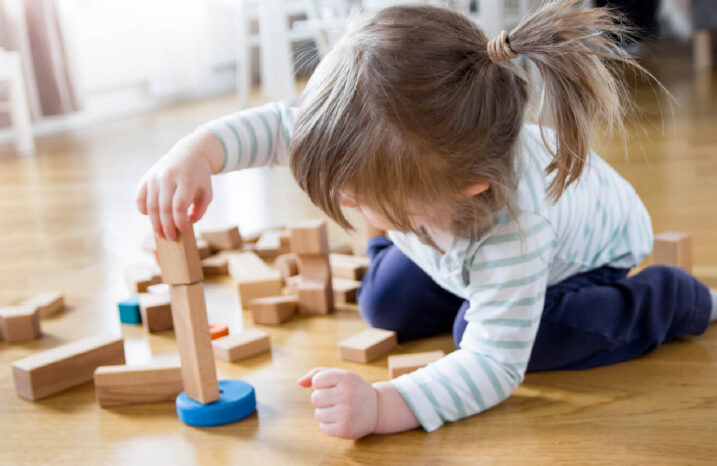What is Fluid Reasoning in Childhood?
Fluid reasoning is the brain’s ability to take in new information without the benefit of practice or experience.
Fluid reasoning is often referred to as abstract reasoning or ‘novel problem-solving.’ It involves applying logic and past knowledge to think flexibly and master new skills.
Fluid reasoning does not require background knowledge. Instead, this type of thinking requires a person to solve problems differently with new materials and with ‘new rules.’
If your child struggles with learning new ways to do things, their fluid reasoning may be impaired.
Symptoms of Fluid Reasoning Challenges in Children
- Struggles when learning something new: you may see your child get stuck on a puzzle or in recognizing a pattern in something not seen before
- Struggles when introduced to new concepts: when a teacher presents a new math procedure, or it is the first day of algebra, your child feels lost and discouraged.
- Resistant to trying a new way, even when the old way doesn’t work: when playing a game or assembling a puzzle, your child refuses suggestions or offers of help
- Gets lost when introduced to new games: you notice your child shies away from block puzzles, Jenga, or a Rubik’s Cube
- Easily frustrated when learning something new: you notice your child experiences anxiety and becomes upset when learning new concepts
- Breaks toys due to frustration: you see your child gets very upset when trying to build something such as a Lego tower and breaks the whole tower down in a fit of anger
Causes of Fluid Reasoning Challenges
Clinically, this ability to solve new problems is called ‘fluid reasoning.’
This type of learning is ‘fluid’ in that it does not build up over time. Fluid reasoning does not require background knowledge. Instead, this type of thinking requires a person to solve problems differently with new materials and with ‘new rules.’
We can measure fluid reasoning through an IQ test. Individuals are presented with patterns and puzzles they have never seen before. They are given only brief directions and no specific methods or strategies. The Matrix Reasoning task in the WISC-V, for example, shows a visual puzzle made of shapes and colors. Your child is then asked to pick the next item in the series. This fluid reasoning task requires recognizing the pattern and carrying it forward.
Tasks like this one are one way we can measure fluid intelligence. Results suggest whether this area is Average, Above Average, or Below Average for your child compared to peers of the same age.
Three premier researchers and thought leaders in the study of intelligence developed the Cattel-Horn-Carroll theory (CHC theory). Intelligence was divided into the following two primary domains: fluid reasoning and crystallized intelligence [1].
Crystallized intelligence is about previously learned information, such as vocabulary, math facts, and categorical academic knowledge. This crystallized intelligence is much more influenced by exposure, cultural experience, and practice.
Fluid reasoning is a measure of how a person responds to new situations or adapts to new approaches [1]. Although verbal skills are not necessarily required, the ability to talk through a problem using a logical strategy is generally helpful with these problems. A person’s ability to think logically and process new information may differ from their assessment of information previously learned.
What to Do about Fluid Reasoning in Childhood
Connect to background knowledge: When children struggle with fluid reasoning, they tend to benefit from help with making connections to background knowledge.
For example, if the child is learning about a new country, it can be helpful to talk to them beforehand about similarities to his own country or culture.
When learning about geometry, parents or teachers might show the child everyday household objects with the same shape (for example, a ball for a sphere, a cereal box for a rectangular prism).
Checklists for step-by-step procedures: ask your child’s teacher or break things down for your child in step-by-step instructions
Model problem-solving strategies: do a ‘think aloud’ while showing a child how to solve a problem [2]. For example, in math, a parent can say, “First, I will read the directions carefully. I will make a picture and write a number model. Next, I will solve the problem.”
Get help for performance anxiety: Anxiety may be the problem if your child’s fluid reasoning is impaired due to refusal to try new approaches. In that case, your child may worry about how they will perform on new tasks and thus may be resistant to learning new strategies or techniques.
This concern would be related to performance anxiety or self-efficacy, which is your child’s belief in their ability to perform well on a particular task. This issue may require an evaluation or therapy to determine if anxiety is an issue and help your child learn coping skills.
Get help for general anxiety: Your child may have generalized anxiety, whereby all uncertainty makes them nervous. Learning something new may be intimidating because they do not know if something bad may happen in this unpredictable situation. Some resources can help your child with anxiety [3-5].
If the problem is more anxiety-related, your child should get better at fluid reasoning after learning coping techniques. If your child receives treatment for anxiety, but the challenges with new learning persist, there may be a cognitive or executive functioning issue.
When to Seek Help For Fluid Reasoning
The good news is that we have ways to test for this cognitive skill. If you find this skill significantly impacts your child, seek a psychologist who can test your child’s fluid reasoning skills. They will also test verbal ability, working memory, and processing speed. Having a complete picture of your child’s learning profile may be helpful.
It may be that your child is having trouble in school with math or science or problems. Ask the teacher if the school has interventions available, such as the Response to Intervention program or special education. In these interventions, teachers or school staff can help your child by providing explicit instructions and step-by-step guidance on math or science problems.
Further Resources on Fluid Reasoning in Childhood
- Psychologist or Neuropsychologist: to consider symptoms in a mental health context, taking principles of educational psychology into account.
- School Psychologist: to potentially test IQ or to consider academic issues (generally only in the context of an IEP evaluation – parents cannot necessarily request an IQ test from the school psychologist)
- Physical Therapist (PT) and/or Occupational Therapist (OT): to look at fine and gross motor skills
- Speech-Language Pathologist (SLP): to assess issues with receptive or expressive language
Similar Conditions to Fluid Reasoning in Childhood
- Verbal Comprehension: if the child struggles to understand the new task due to poor comprehension of directions, verbal comprehension may be impaired
- Spatial Reasoning: if the child struggles on new tasks like reading maps and solving puzzles, spatial reasoning may also be impaired
- Intelligence: if the child has difficulty with cognitive tasks and has a low IQ overall, fluid reasoning is likely to be impaired
- Rigid Behavior: if the child struggles on new tasks because she is ‘set in her ways,’ she may have a problem with rigidity
- Non-verbal Reasoning: if the child struggles to learn new things in terms of visual puzzles or logical reasoning, there may be an issue with non-verbal reasoning
- Flexibility: if the child struggles to learn new tasks because he or she has trouble fluidly shifting from one approach to another, there may be a problem with an executive function called ‘shift’ or ‘cognitive flexibility’
- Anxiety: if the child struggles on new tasks because they cannot tolerate the uncertainty inherent in learning something new, the child may have general anxiety, performance anxiety, or low self-efficacy (belief in one’s ability to do a task well)
- Self-Esteem: if the child struggles to try out new procedures due to an overall lack of self-confidence and belief in themselves, self-esteem may be the issue
References on Fluid Reasoning in Childhood
[1] Mather, Nancy & Goldstein, Sam (2015). Learning disabilities and challenging behaviors: Using the building blocks model to guide intervention and classroom management, third edition.
[2] Huebner, Dawn (2005). What to do when you worry too much: A kid’s guide to overcoming anxiety (What to do guides for kids).
[3] Peters, Daniel B. (2013). From worrier to warrior: A guide to conquering your fears.
[4] Foxman, Paul (2004). The worried child: Recognizing anxiety in children and helping them heal
[5] Sattler, Jerome (2014). Foundations of behavioral, social, and clinical assessment of children (p.140).
Book Resources on Fluid Reasoning
[1] Deak, JoAnn & Ackerley, Sarah (2010). Your fantastic elastic brain stretch it, shape it.
[2] McCumbee, S. (2014). The garden in my mind: Growing through positive choices.
[3] McCumbee, S. (2014). The garden in my mind activity book.[4] Kroncke, Willard, & Huckabee (2016). Assessment of autism spectrum disorder: Critical issues in clinical forensic and school settings. Springer, San Francisco.


